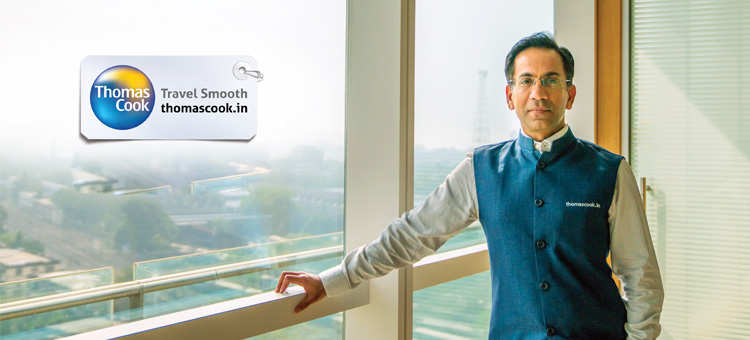Mumbai: 2018 was a good year for Thomas Cook (India) in spite of early challenges on the B2B side due to GST implementation. FIT and GIT traffic witnessed 20 per cent growth and forward bookings saw an upswing of 35 per cent. “Things have settled down and demand has bounced back,” affirmed Abraham Alapatt, President & Group Head – Marketing, Service Quality, Value-Added Services & Innovation.
According to Alapatt, the clear trend emerging is one of aspirational, mono-destination travel seeking deeper experiences and customers wanting to play bigger roles in designing itineraries rather than signing up for readymade packages. “While GIT business is growing, focus is on FIT and ad-hoc travellers, and new age travellers.”
The previous generation of travellers wanted to cover as many countries within a limited time and budget. Today, customers want to immerse in experiences in one destination. “Even in GIT, we talk about unique experiences. That is why people come back to us,” reminded Alapatt about how they differentiate in the market. “The destination, airline and hotel may be the same but experiences can be redefined.” Customer experience and its quality are other key differentiators for Thomas Cook (India). “It is the reason why we acquired Kuoni’s DMC network across the world. Today, we can manage end-to-end quality of customer experience across 24 countries.”
Increasingly, more and more travellers are carrying out initial research and booking online. Indians are taking frequent domestic holidays and ticket sizes have been increasing over the years. Thomas Cook (India) has invested in technology to be ahead of the game. “We are a hybrid company as 30 per cent of our business is coming via online. We are making tremendous investments into technology to improve customer experience.” In stores, VR to showcase videos has replaced brochures. WhatsApp is being used to send short itineraries as the young traveller is moving away from e-mail too. The CS (customer service) app which was launched last year in addition to the TC (Thomas Cook) app allows customers to track everything from visa status to having digital travel documents while travelling. “Customers feel safe and secure and technology plays a huge role.”
Emerging segments like women travelling alone, senior citizens’ travel and study tours are demanding attention. Thomas Cook (India) has a dedicated vertical called Travel Quest for educational trips. “This business has been growing 40 per cent in the last two years. We started with schools. Now even the IITs and IIMs are customers. We customise based on what students are learning, so automobile engineers are taken to BMW and Mercedes-Benz factories; techies to Google and Facebook.” SIG (Special Interest Group) travel is a niche business with potential for huge growth. Another business, Explore, is into adventure experiences and opening up big time in India.
“The online market is largely ticketing, low value, short haul and 2-3 night itineraries. It is why many online players are now looking at investing in offline as growth in online is slowing down. This category will not grow in India like it did in the US. We as a community will not make a holiday investment without discussing, negotiating and clarifying face-to-face. That’s our nature,” opined Alapatt.
Most customers today start with a click and then do a brick fulfillment. Thomas Cook (India) is the country’s largest outbound, inbound, MICE and corporate travel player. “Clearly, the focus is to grow the domestic space from now on – the only segment where we are not a leader now.”





